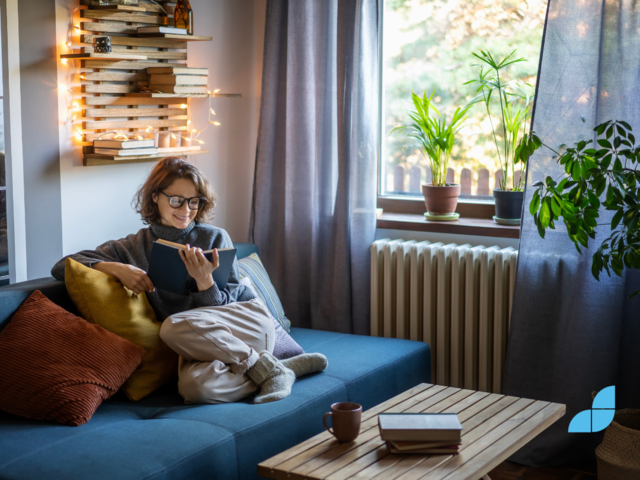The Benefits of Digital Detox: How to Disconnect to Reconnect
In today’s hyperconnected world, the digital realm consumes our lives more than ever before. From endless notifications to mindless scrolling, the constant barrage of information can leave us feeling drained and disconnected from what truly matters. Digital detoxing—the deliberate act of stepping away from screens—isn’t just a trend; it’s a necessity for mental clarity, emotional well-being, and deeper connections.
The irony of the digital age is that while it promises connection, it often creates barriers to authentic relationships. Whether it’s family dinners interrupted by phone pings or weekends spent glued to streaming services, the allure of technology can pull us away from real-world experiences. By embracing a digital detox, individuals can break free from the constant noise and find a renewed sense of balance.
Research shows that excessive screen time contributes to stress, anxiety, and even disrupted sleep patterns. A break from the digital world not only helps to reset these effects but also offers a chance to rediscover hobbies, deepen relationships, and cultivate mindfulness. This article dives into the transformative power of digital detoxing and provides actionable insights to help you get started.

Understanding the Impact of Digital Overload
The Psychological Toll Endless notifications, emails, and social media updates can create a perpetual state of alertness. This overstimulation impacts our brain’s ability to focus and relax, contributing to feelings of anxiety and burnout. According to psychologists, the dopamine-driven cycle of likes and shares keeps us hooked, making it difficult to unplug.
Physical Health Consequences Digital overload doesn’t just affect the mind; it takes a toll on the body too. Poor posture from prolonged screen use leads to back and neck pain, while blue light exposure disrupts circadian rhythms, impacting sleep quality. These issues highlight the need for conscious screen breaks to prioritize physical health.
Impact on Relationships Despite its promise to connect, technology can erode intimacy. Studies reveal that excessive phone use during social interactions—a phenomenon called “phubbing”—leaves people feeling undervalued. Taking a digital detox creates space for genuine face-to-face connections.
Case Study: Lisa’s Transformation Lisa, a busy marketing executive, noticed her constant connectivity was affecting her mental and physical health. After trying a weekend detox, she reported better sleep, improved focus, and more meaningful interactions with her family. Her story underscores the transformative potential of stepping away from screens.
Why Disconnecting Helps You Reconnect
Rediscovering Personal Passions Without the distraction of screens, people often find time to pursue hobbies and interests they’ve neglected. Whether it’s painting, gardening, or writing, these activities provide a sense of fulfillment and joy.
Building Deeper Relationships Digital detoxing encourages us to be present, strengthening bonds with loved ones. Intentional moments of connection, such as a screen-free dinner or a nature walk, allow for deeper conversations and shared experiences.
Reconnecting With Nature Time away from devices often leads to more outdoor activities, which have been proven to reduce stress and increase happiness. Whether it’s hiking, meditating in a park, or simply soaking up the sun, nature offers a powerful antidote to digital fatigue.
Expert Interview: Dr. Karen Mitchell Dr. Karen Mitchell, a behavioral psychologist, explains, “Digital detoxing allows the brain to reset and strengthens our ability to focus on meaningful connections. It’s a simple yet impactful way to improve overall well-being.”
Practical Tips for a Successful Digital Detox
Start Small Begin with manageable goals, like setting aside one hour each evening without screens. Gradually increase the duration as you become more comfortable with being unplugged.
Designate Screen-Free Zones Creating boundaries, such as no phones at the dinner table or in the bedroom, ensures certain parts of your life remain tech-free. This fosters more meaningful interactions and better sleep quality.
Use Technology to Help Ironically, apps can support your digital detox journey. Tools like “Forest” or “Freedom” block distractions, while meditation apps help cultivate mindfulness.
Create a Plan Write down specific goals for your detox. Whether it’s spending more time with family, rediscovering a hobby, or simply relaxing, a clear plan keeps you motivated and focused.
The Role of Community in Digital Detoxing
Joining a Support Group Having accountability partners can make the detox process easier. Groups like “Screen-Free Sundays” or local meetups offer a shared space for encouragement and tips.
Organizing Screen-Free Activities Host events where devices are not allowed, such as game nights, cooking classes, or book clubs. These gatherings create opportunities for fun and connection without screens.
Family Detox Challenges Engage your family in a digital detox challenge. Set collective goals, like a weekend without devices, and celebrate achievements together. This builds a culture of mindfulness within the home.
Case Study: The Peterson Family After realizing their evenings were dominated by individual screen time, the Petersons introduced “Tech-Free Fridays.” Over time, they noticed improved communication, stronger bonds, and a more relaxed household.
Long-Term Benefits of Regular Digital Detoxes
Enhanced Mental Clarity Periodic breaks from screens allow your brain to recharge, improving focus, creativity, and problem-solving skills. Many professionals report feeling more productive after a detox.
Improved Emotional Well-Being Without the pressure of constant online engagement, people experience reduced stress and greater contentment. Detoxing from social media also decreases feelings of inadequacy caused by comparison.
Stronger Real-World Connections Making digital detoxes a regular habit strengthens relationships and fosters a deeper sense of community. Being fully present helps you appreciate the richness of offline experiences.
Testimonial: Alex’s Perspective “Taking monthly digital detoxes has been life-changing for me. I feel more in tune with myself and those around me. It’s amazing how much more I’ve achieved by simply putting my phone down.”
Conclusion
A digital detox is not about rejecting technology but redefining its role in our lives. By disconnecting from screens, we open the door to greater mindfulness, stronger relationships, and improved mental and physical health. Whether you start with small changes or take a deep dive into a screen-free weekend, the benefits of digital detoxing are profound and lasting. It’s time to unplug, reset, and reconnect with what truly matters.






